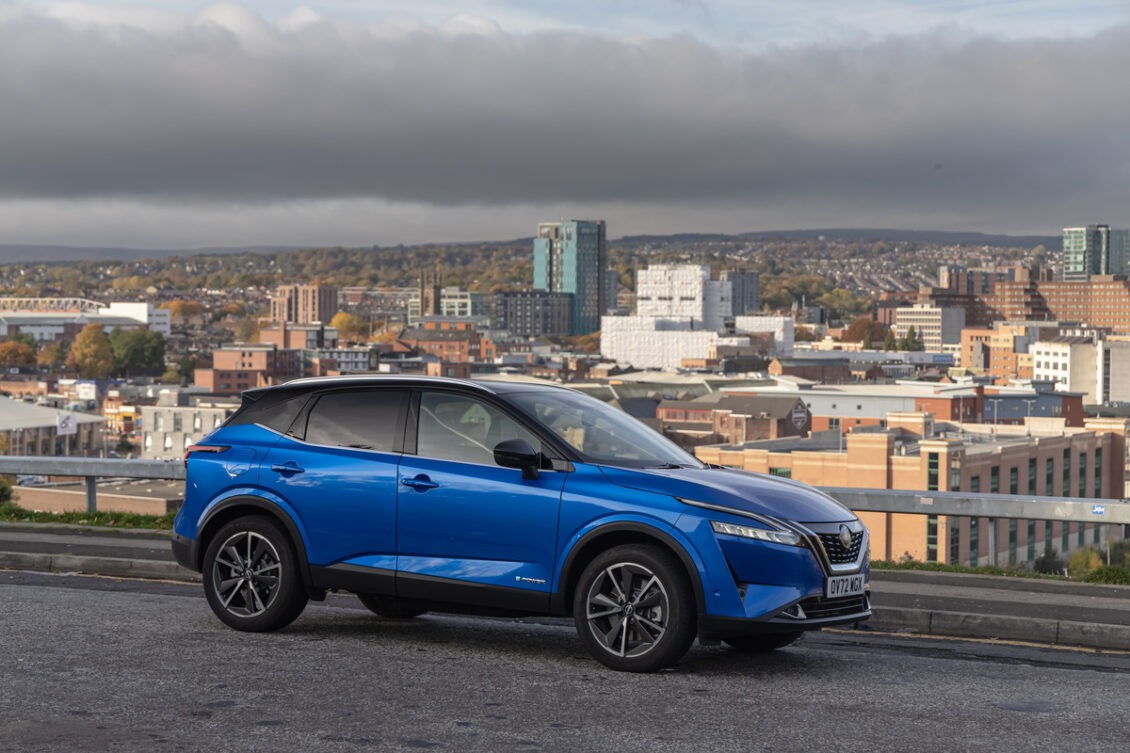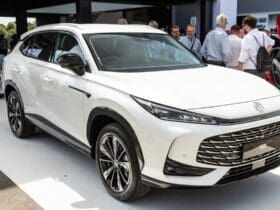The 24-plate change boosted new-car registrations in March, according to SMMT figures.
But private buyers have put the brakes on pure electric purchases and the car makers want Government incentives to be increased if it wants to meet emissions targets..
March signals a twentieth month of consecutive growth for the automotive sector, a remarkable milestone for the industry, said Sue Robinson, Chief Executive of the National Franchised Dealers Association (NFDA), which represents franchised car and commercial vehicle retailers in the UK commenting on the latest SMMT new car registration figures.
In March, a total of 317,786 new cars were registered, an increase of 10.4% from the same period last year. Sales to private buyers decreased by -7.7%; fleet registrations were up by 29.6%.
Battery electric vehicles (BEVs) experienced an increase, up 3.8% to 48,388 units. Plug-in hybrid (PHEVs) registrations increased by 7.7% to 24,517 units, and hybrids (HEVs) followed with growth of 19.6% to 44,550 units. There are 84,314 registered BEVs on the road in 2024 compared to the 76,233 units at the same point last year, a 10.6% increase.


With sales of electric growing, diesel fell from 23,968 units to 23,312 units (-2.7%), but petrol has risen from 162,046 units to 177,019 units (9.2%).
Sue Robinson concluded, “it is encouraging that the first quarter of 2024 has demonstrated continuous growth in new car registrations and electric vehicle sales. With March being a plate change month, this month’s growth appears to have been given a boost with the introduction of the ’24 plate.
“Despite the robust growth being demonstrated by the sector, it was disappointing that the Government offered little support to the industry in the recent Spring Budget which could have aided in accelerating this momentum further. Notably, there was no mention of price incentives for EVs, particularly as manufacturers seek to meet the targets outlined by the ZEV mandate.
“Private demand continues to be superseded by fleet, as has been the case in recent months, in which incentives could act to encourage private buyers.”
Tesla was the top selling BEV brand with nearly 7,000 registrations, but that was still 33.34% below March 2023, while Polestar also saw sales halve to 803 models. China’s BYD catapulted up the sales chart with 759 registrations and the GWM Ora marque pulled in 310 sales.
The SMMT said that a full market transition needs incentives not just for fleet and business buyers but private retail buyers as well, something that would bring the UK into line with other major markets.
Temporarily halving VAT on BEVs, revising the threshold for the expensive car supplement on Vehicle Excise Duty next April, and abolishing the ‘pavement penalty’ on public EV charging by equalising VAT rates to 5% in line with home charging, would make a significant difference to consumers, helping more of them move to zero emission vehicles sooner.
SMMT CEO Mike Hawes said, “Market growth continues, fuelled by fleets investing after two tough years of constrained supply.
“A sluggish private market and shrinking EV market share, however, show the challenge ahead. Manufacturers are providing compelling offers, but they can’t single-handedly fund the transition indefinitely.
“Government support for private consumers – not just business and fleets – would send a positive message and deliver a faster, fairer transition on time and on target.”
The top 24-reg models in Britain
- Nissan Qashqai
- Ford Puma
- Kia Sportage
- Nissan Juke
- Audi A3
- Vauxhall Corsa
- MB A-Class
- Volkswagen Golf
- Tesla Model Y
- MG HS
Petrol went up nearly 2p (1.86p) a litre in March from 144.62p to 146.48p meaning the average price at the pumps has increased almost 6p since the start of the year, according to RAC Fuel Watch.
mso-ansi-language:EN-GB;mso-fareast-language:EN-US;mso-bidi-language:AR-SA”>Diesel rose by more than a penny from 154.68p to 155.99p (1.31p), making for three consecutive months of rises. A full 55-litre tank of petrol now costs £80.56 – up by £1 – and diesel £85.79, up 72p.








Leave a Reply
View Comments